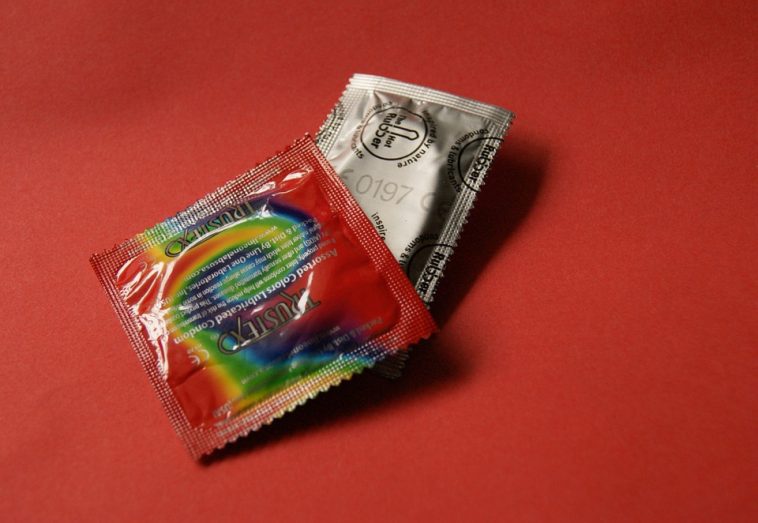In a first, researchers at Boston University have created what they call a “self-lubricating” condom — and one condom maker is already in the spotlight.
Unlike currently available lubricated options, the condoms designed by the BU team have a polymer coating that can trap moisture collected in water and bodily fluids on the condom's surface, resulting in a self-lubricating condom that can remain slippery during use without the need to add any additional lubrication.
Existing condoms typically use silicon-based lubricants that can repel moisture, leading to the surface becoming somewhat sticky and requiring assistance to remain smooth and effective.
So far, the new condom has not been fully tested, but a touch test and survey showed promising results. 85% of people who participated in the study felt that the new material was the most slippery, compared to traditional latex condoms, as well as condoms in combination with lubricant.
“People found [the slipperiness] to be an attractive feature,” said Mark Grinstaff, one of the researchers behind the study. “Those in our survey who don't normally use condoms said they would consider using a condom if it remained this slippery.”
Nine out of ten participants said they would use a condom made from this material over the usual latex condom.
Research into the material has been going on for around three years and has included almost 1000 different formulations to achieve the current material.
The project began after a call for proposals from the Bill and Melinda Gates Foundation, which pushed for new technologies that could increase condom adoption around the world. The Foundation awarded $100.000 to the 11 researchers on this project.
“Preventing the spread of HIV and other diseases is extremely important,” said Grinstaff. “That really was the driving force for creating new technologies here.”
As the use of pre-exposure prophylaxis (PrEP) has grown, the use of condoms has declined as a protection against HIV. As a result, the incidence of other STIs has also increased.
Stacy Chin, another of the study's co-authors, is the CEO of HydroGlyde Coatings. HydroGlyde Coatings has already raised $1,4 million in funding to bring this material to market.



